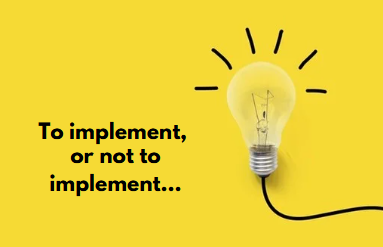I came across a post on my LinkedIn homepage recently that made me stop and reflect. It was describing a talk that Steve Jobs gave back in 1992 to a group at MIT Sloan School of Management. In this talk, he shared his personal thoughts about the consulting profession that weren’t exactly positive.
Now, as someone who works as a consultant, you can understand why this made me stop for a moment to watch the video. Even more so as a consultant who is fairly new to the profession and often struggles with identifying as a consultant because of potential negative perceptions.
In the video, Steve shares his perspective of how consultants miss out on key opportunities to learn, as the short-term collaboration doesn’t typically allow for consultants to stick around for the implementation of the recommendations they provide. As a result, he feels consultants don’t get the chance to see the successes and failures through all the stages of action. He speaks about how missing out on chances to take responsibility for mistakes is a lost opportunity for great learning. In his mind, consultants never get to build up valuable “scar tissue” to learn from these experiences and improve.
The author of the LinkedIn post sharing this video offered some reflection questions and asked folks what they thought – is Steve Jobs right or are his views outdated given today’s different working climate?
So here are some of my thoughts.
Steve is right…to an extent. Yes, as consultants we are often brought in for short periods of time to work on a specific project. We collaborate with the client to deliver a product that often consists of a plan or recommendations that are to be implemented after our time together. As consultants, we understand that’s the gig. We know there is an expiry date to our collaboration on a project – as much as we love when we get the chance to stay for longer and learn from the implementation of our proposed plans or recommendations – there isn’t always the budget to support this.
But here is where Steve may have missed the mark. In my three years working as a consultant, my teammates and I at Collective Results have experienced non-stop learning with our clients! Each project we work on may have a start and an end date, but that doesn’t mean the learnings end with that project too. The wonderful thing about consulting with clients from across multiple sectors is we can share that collective wisdom with other organizations that are often tackling common issues.
At Collective Results, we are constantly looking for ways to incorporate our learnings from previous projects to make improvements for future ones. Anyone who has ever led a group facilitation that just flopped – I’m talking awkward silences, confusion, critical comments – knows that builds up some painful “scar tissue” as you try to figure out what went wrong and what you can do better for the next time.
As consultants, we recognize it is a privilege to be invited into the inner workings of our client’s organization and work closely with their team of people – even if it is just for a short period of time. We also take pride in knowing our role. As process consultants, we know we are not usually the content experts who have that “scar tissue” built up from previous rounds of attempted implementation. We see our role as helping to guide organizations through a process where they can tap into their own knowledge so the product we create together is rooted in those important learnings.
On the LinkedIn post, one individual left a comment that stated, “Consulting without execution is like giving a recipe without cooking the meal”. Sometimes we do get to stick around longer and help to cook the meal. We have project management and change management experts who love doing this! And our clients are always so appreciative when we can help bring their initiatives over the finish line.
However, most times, as much as we would like to help cook, we were not brought in to be the chef. Our role is often to write the recipe – but our job as consultants is to make sure it’s the most authentic, accurate and actionable recipe we could possibly create for your organization. It has to have the correct ingredients, the right amounts, and clear directions that are easy to follow so our clients are not left wondering….how to fold in the cheese [a reference to a very funny scene from an episode of the Canadian TV show Schitt’s Creek]
I can understand where Steve is coming from with his thoughts on consulting. We don’t always get to experience the successes and failures of implementation. However, there are so many other chances to learn from a project along the way as well as opportunities to follow up with our clients and check in on how the implementation went. Learning is one of our core values at Collective Results and we will continue to make it a priority with all our projects.

